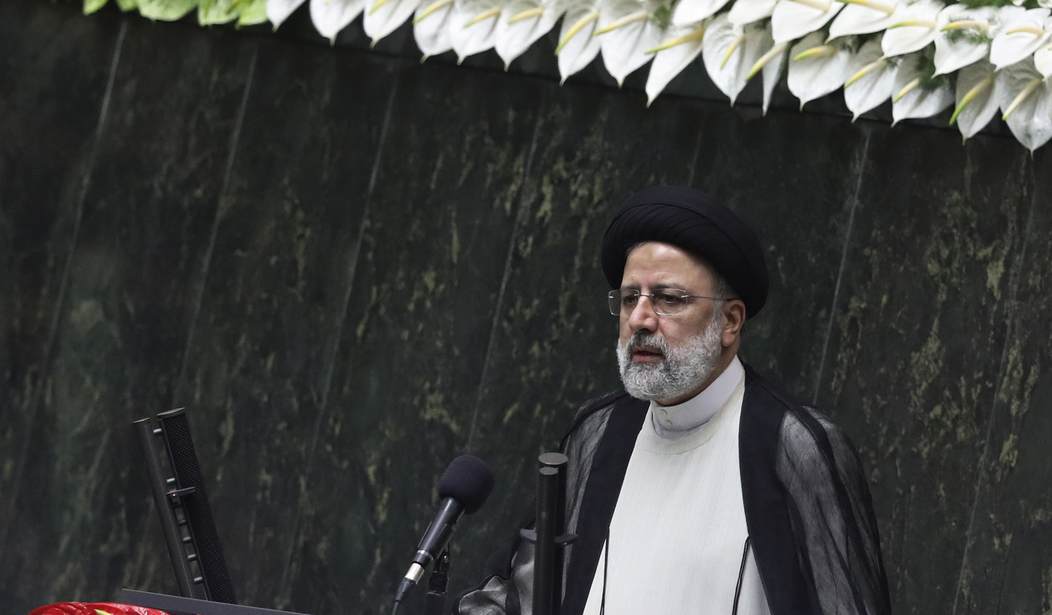The 2020s are starting to look like the 1930s, as I wrote last week in the wake of Hamas' unprecedentedly vicious attack on Israel.
Nations that embody, imperfectly but creditably in any historical perspective, representative politics, rule of law, and respect for human rights -- Ukraine, Israel, Taiwan -- have been under attack or threat of attack from nations whose leaders scorn those arrangements, and the United States has scrambled, awkwardly and possibly inadequately, to protect them.
Historians have called their counterpart attacking powers of the 1930s revisionists. Nazi Germany, fascist Italy and militaristic Japan wanted to revise and replace the wobbly but mostly benign international architecture that victorious powers created after what participants had not yet had occasion to call World War I.
American and European leaders were reluctant to recognize the revisionist character of Vladimir Putin's Russia and Communist China.
Each president who has come to office in this century has sought a reset of some sort with Putin's Russia. The argument has been that the preceding administration ham-handedly neglected to recognize Russia's legitimate interests.
But that appeasement failed, most visibly when the Russian foreign minister told Secretary of State Hillary Clinton that the Cyrillic letters on her red button meant not "reset" but "overload." The recognition of Russia's revisionism came after 2016, when for two years Democrats charged, with no evidence except that concocted by their own agents, that Donald Trump was a Russian agent. No more red buttons for Sergey Lavrov.
China policy remained unchanged for even longer, from Henry Kissinger and Richard Nixon's journeys to Beijing in 1971-72. It was premised on the plausible hope that an economically vibrant China, linked to the West by extensive trade, would become more democratic and respectful of international norms.
Recommended
But even after China was granted favorable trade status in the last year of the Clinton administration, its negative impact on American industry and its stubborn revisionism abroad started to be noticed. Pleas by the likes of Deputy Secretary of State Robert Zoellick for China to become a "responsible stakeholder" went unheeded.
Were Russia and China's revisionism the result of flawed American policies? Some have blamed the Clinton-Bush-sponsored eastward expansion of NATO and the coddling of a regime that employed slave labor and stole intellectual property.
But it's possible to imagine that if Boris Yeltsin had chosen someone other than Putin as his successor in 1999, or that if Xi Jinping had not abolished Deng Xiaoping's term limits that had been observed by his two predecessors, Russia and China would not have become so revisionist.
It's hard to make the same case about the mullah's Iran. It has been ruled since 1979 -- for 44 years -- by just two ayatollahs, both hostile to democracy and human rights and determined to injure the United States and destroy Israel.
Yet successive U.S. administrations of both parties have reached out and tried to appease a regime that has proved unappeasable. Jimmy Carter begged the mullahs to release the 44 American diplomats whom the mullahs imprisoned, contrary to the most ancient principle of international law.
The United States was entitled to, as I remember hearing New York Democratic Sen. Daniel Patrick Moynihan saying, bring fire and brimstone to the gates of Tehran, and Carter did authorize a small rescue mission which, alas, proved unsuccessful. My recollection is that Americans of both parties, after the recent fall of Saigon, felt like whipped dogs, afraid to do anything but beg and tie yellow ribbons around trees.
Later, Ronald Reagan made feints toward Iran, and George W. Bush's Iraq War left Americans vulnerable to Iranian attacks. The high point of U.S. collaboration with Iran was the negotiation of the JCPOA deal supposedly delaying its nuclear arms program, inspired by the former novelist Ben Rhodes and cheered on by President Barack Obama, Vice President Joe Biden and Secretary of State John Kerry.
The nuclear deal was repudiated by Trump, but the Biden administration has brought back much of the JCPOA crew, minus Robert Malley, whose security clearance has been revoked, and Biden has begged the mullahs to resuscitate it.
The mullahs aren't interested. The Wall Street Journal on Oct. 8 and The New York Times on Oct. 13 reported that Iran helped plan the Oct. 7 attacks. But Biden, despite his unequivocal denunciations of the attackers and stirring pledges to support Israel, and despite his dispatch of two carrier groups and his personal trip to Israel, has declined to blame Iran. Do visions of sugar plums -- the revival of the nuclear deal -- still dance in his head?
Biden's appeasement policy toward Iran "remains, as it has since President Obama first began to implement it," Walter Russell Mead writes in the Wall Street Journal, "a destabilizing force in the Middle East." The character of the mullah regime has not changed in the 44 years of its existence -- longer than Mao's reign and the Deng regime in Beijing, longer than the Soviet Union's satellite empire in Eastern Europe, and just months short of Vladimir Lenin and Josef Stalin's murderous reigns in Moscow.
Iran's regime has been revisionist from the start, violently opposed to decent governance, determined to eradicate human rights, and is the enemy of every value Americans hold dear. Recognizing this is essential to navigate the storm that is gathering in Ukraine, Israel and Taiwan.

























Join the conversation as a VIP Member